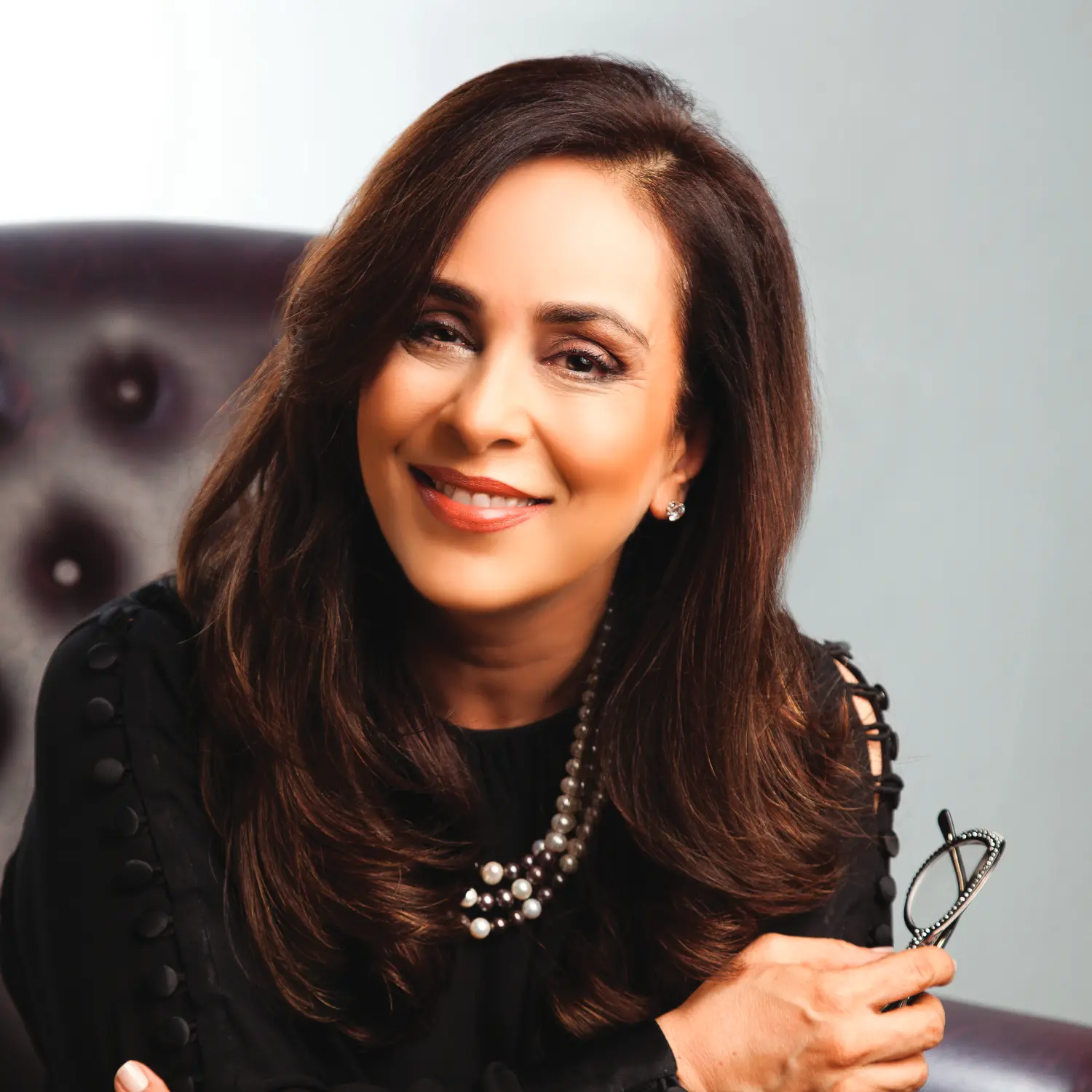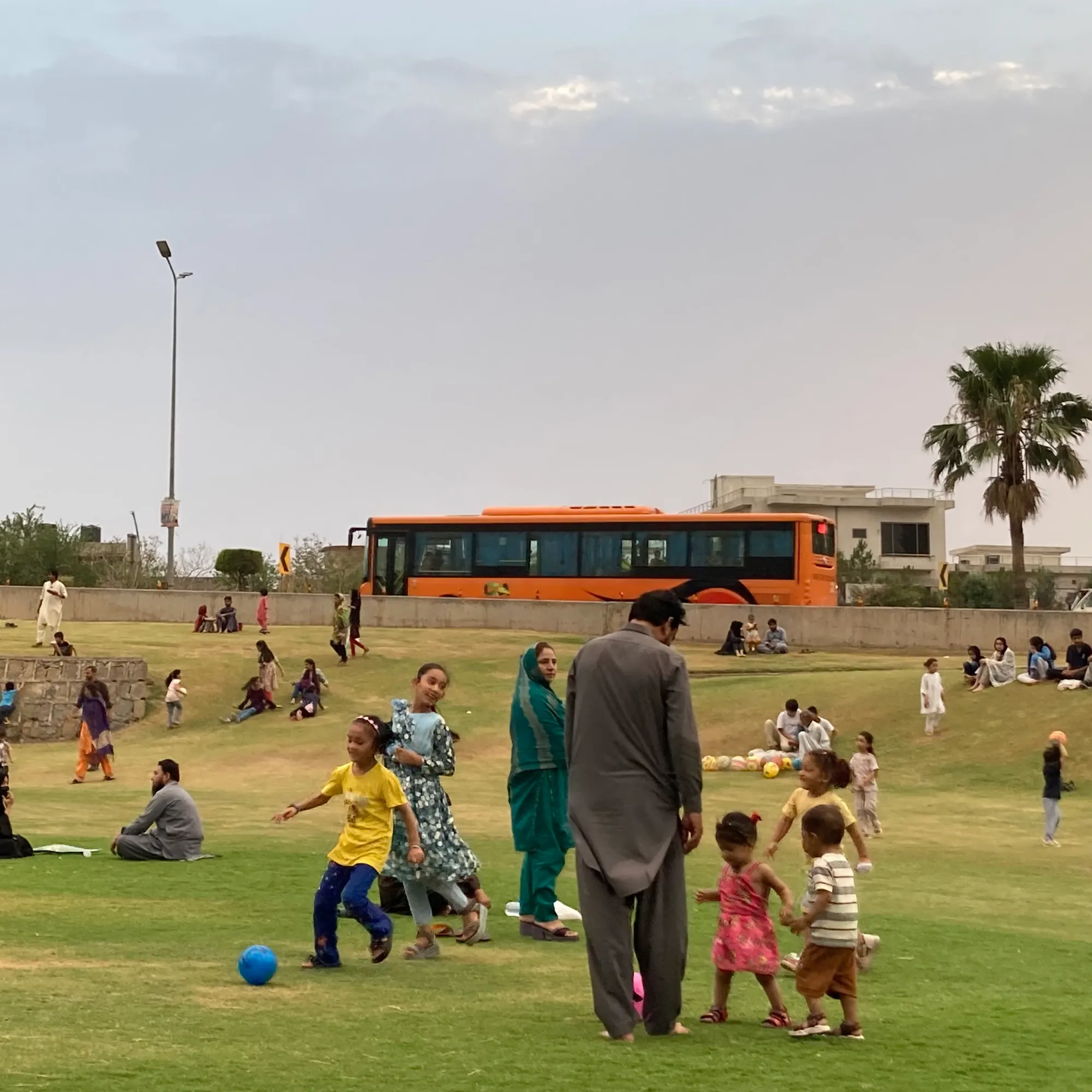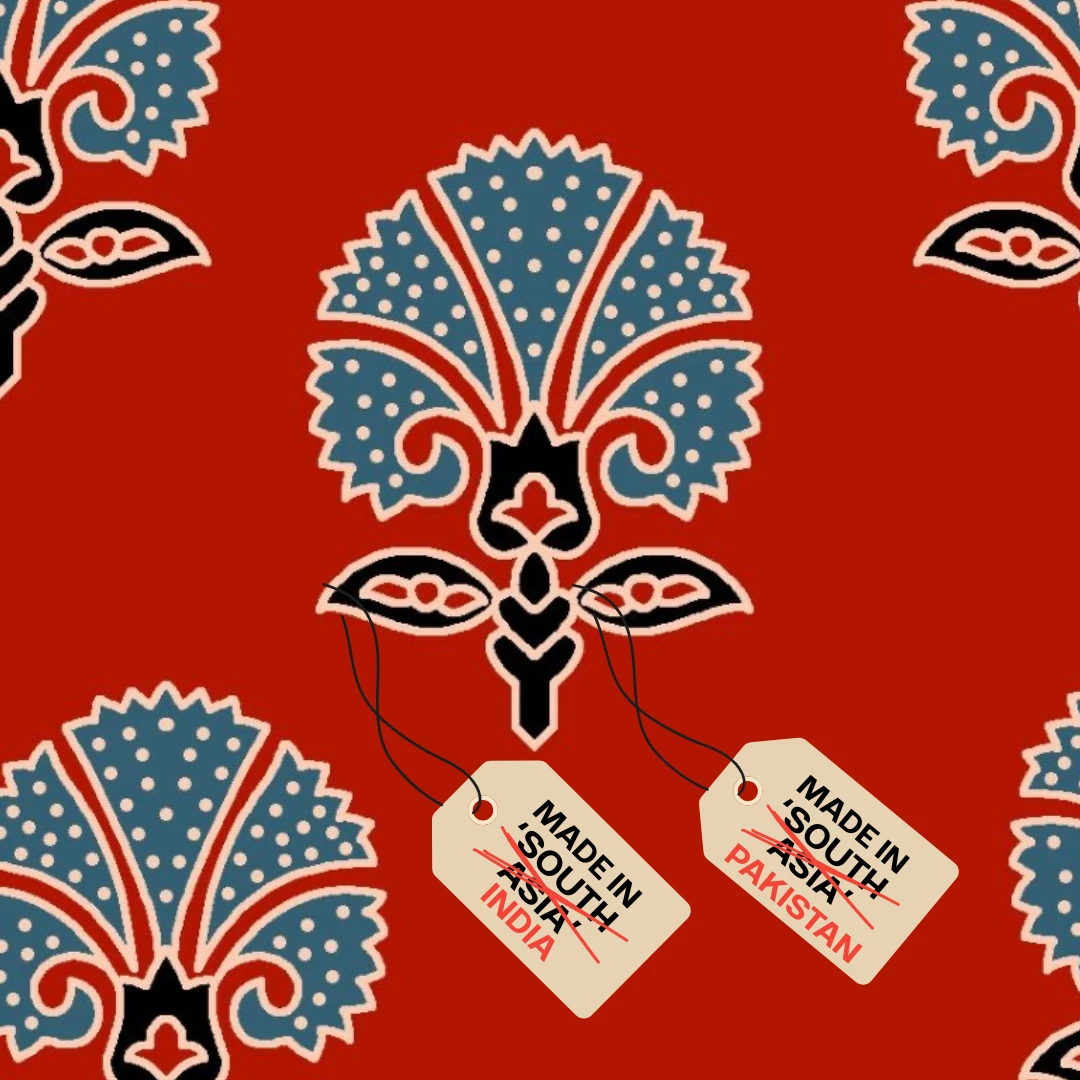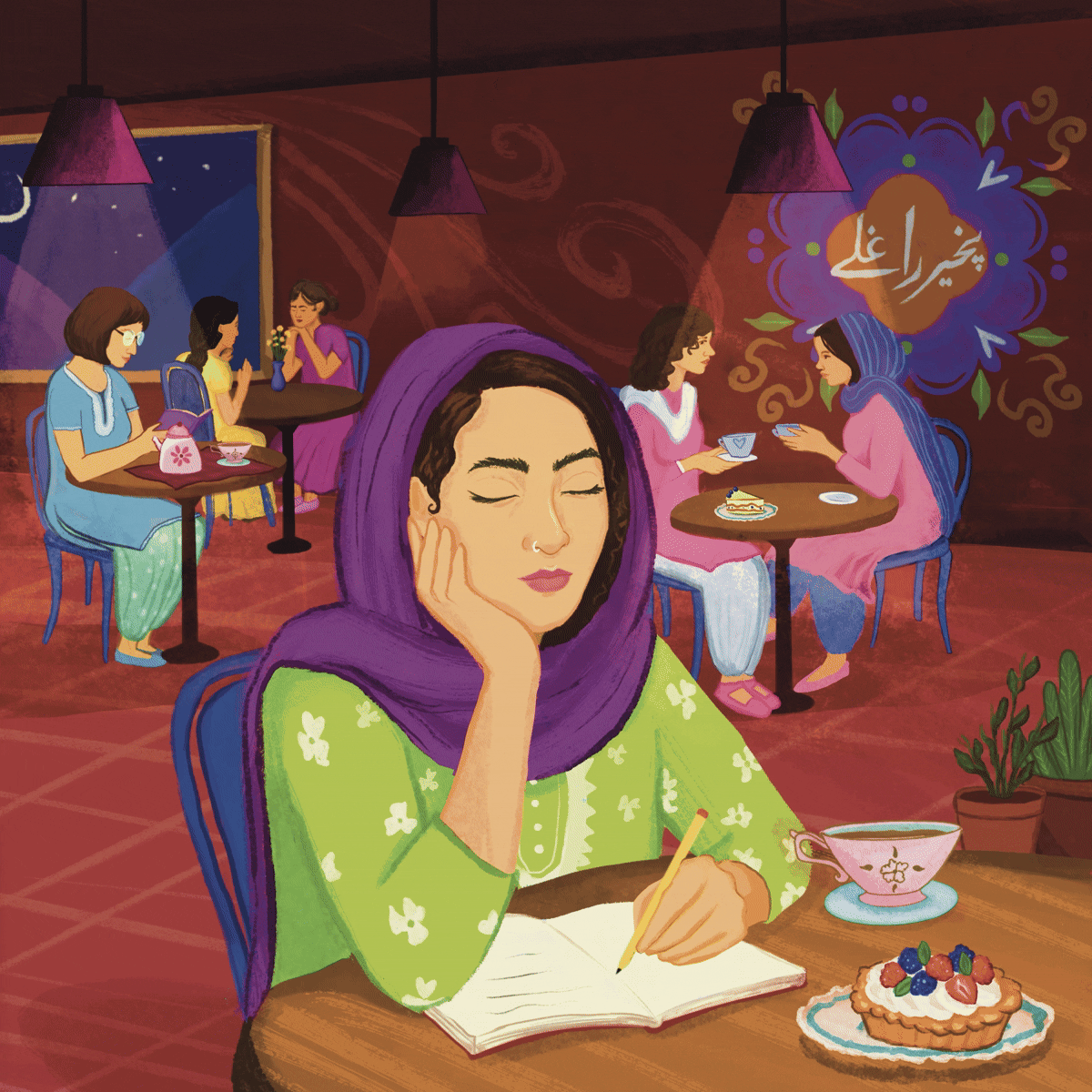The phrase ‘Woman Publisher’ universally draws forth images of power and gender pride. In Pakistan, it can also mean resilience (our favourite national word)—a constant battle to extract money from bookstores that stock your product at up to fifty percent of its price, a running battle to find sponsors and ads, rising paper costs… and yet, despite all this struggle, a sense of pride that you are adding value to the written word.
Women, like anyone else, only get into books if they are genuinely interested in this field. My own experience as a publisher began after a long stint as Editor-in-Chief of various magazines.
I still remember the day Navid Shahzad, the thespian and author, who was then editor of Libas International, the bible of Pakistani fashion in the ‘90s, approached me to work alongside her. Before that I had also joined The Friday Times briefly, just before it launched. In both cases I had to pull back because of my three kids and the sometimes draconian demands of living with one’s in-laws.
Then, Sehyr Saigol, the publisher of Libas, approached me and refused to take no as an answer. I had been already writing for Libas: book reviews and even short stories (shoutout to Ambreen Zaman, my friend, for marshalling me to the Libas office for this).
In no time, I was firmly entrenched as editor of that magazine. Being an editor also gave me an insight into the publishing side of running a magazine. Sehyr would have meetings where the editors and the person eye-balling the production of the magazine pow-wowed around her desk. I would listen as he gave a detailed resumé of the ads coming in, the deadline for sending the magazine to Dubai—where it was printed—and other little asides that I found fascinating.
After the magazine was laid out, we would all troop over one day to a printer beyond Mall Road, where said printer mysteriously duplicated each page for export. After that, coloured proofs would arrive at the office, and my assistant and I staved off many headaches trying to squeeze out the inevitable little typos. They would have become more, not less, in the endless trips between printer and office. It was truly like pushing Sisyphus’ boulder up the hill. To this day I have not figured out why the magazine was not directly exported online to Dubai after it was completed in our office. It was ten, maybe eleven, years before I saw the last of Libas.
My main passion, throughout this all, was writing. At home I would churn out poems, short stories and even a novel. The novel still awaits publication, but my poems and short stories have been published in many journals and books abroad and in Pakistan; I have also been nominated for the Pushcart Prize for my poem ‘Karachi’.
Yet for all that, I again ended up being Editor-in-Chief of a lifestyle publication, this time Hello! Pakistan. If a trip every two months to Mall Road was a headache, I wonder why I got involved in a magazine that entailed me going all the way to Islamabad every month to send it off to the printers (with just a click on the ‘send’ button from our savvy layout in charge, Sana Hassan). I lasted three years under publisher Zahra Saifullah, but by this time I was seriously contemplating my own publication.
However, representatives of a major Urdu daily and The Herald Tribune wanted me to be editor of their weekly English magazines—in the case of the former, the idea was to start something from scratch and I remember flying to Karachi to meet the lawyer and the representative of the daily at their office, well after dinner. Cloak and dagger stuff, but I was impressed that the assistant was as chipper as if it were ten in the morning. That would not have happened in Lahore, I thought—a new insight into the madly busy world of newspaper publishing. Both these positions entailed travel to Karachi—the frequent trips to Mall Road seemed less and less arduous at that point.
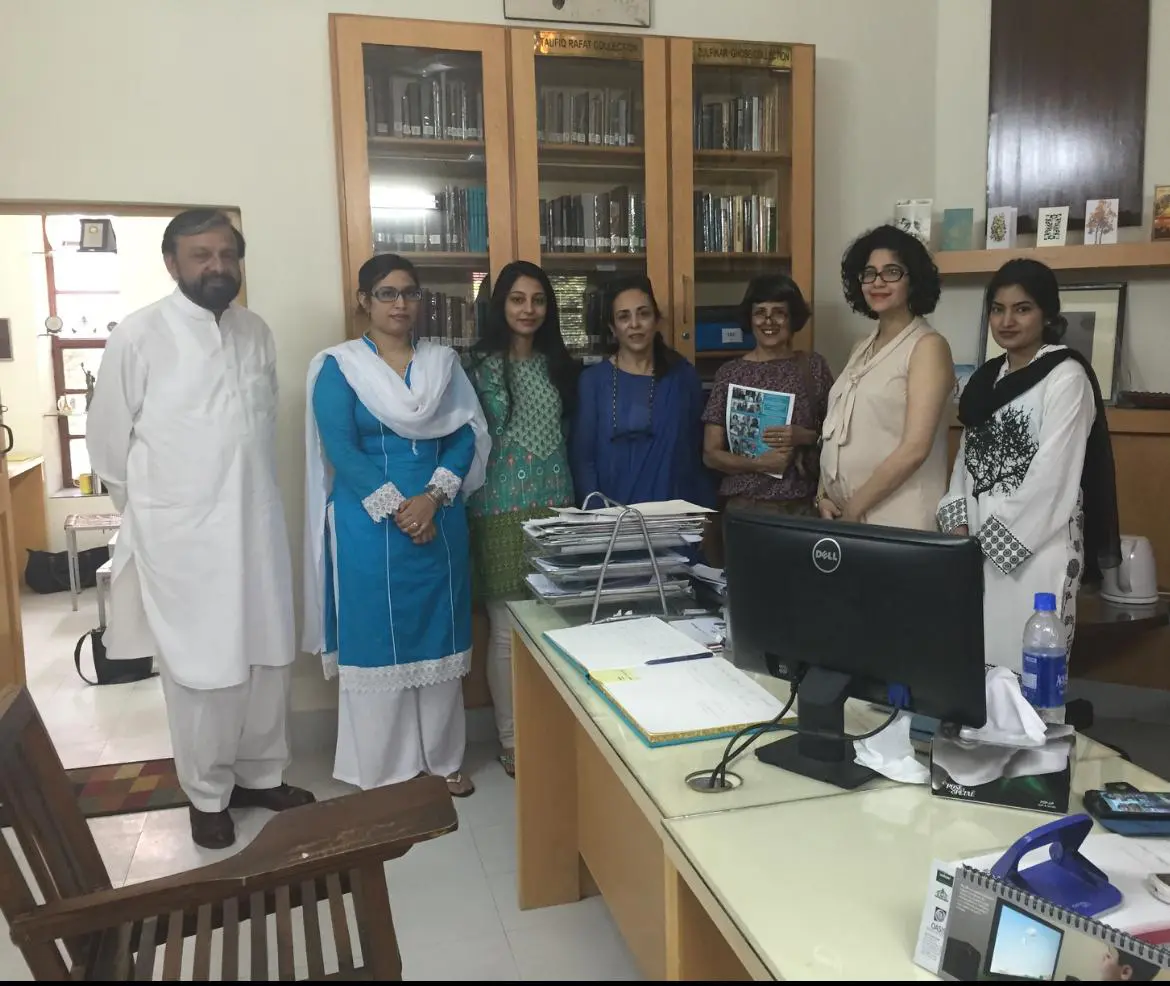
In the meantime, I had also been approached by the head of ICPWE, the International Centre for Pakistani Writing in English, based in Lahore, to archive material for them. My suggestion was to come out with a journal, an idea met with great enthusiasm but plenty of bureaucratic protocol, including many long meetings in which a factotum took down the minutes of our ruminations as seriously as if we were the top lot at the Oval Office, planning a new war on a new country.
Ruminating between two choices—another lifestyle magazine versus a literary and art journal—I broke my leg and had to lie in bed for weeks thereafter. To keep boredom at bay, I ended up taking on both the choices I had been vacillating between earlier. I accepted the editorship of The Herald Tribune and started The Aleph Review, more or less simultaneously. I would have meetings with editors of the Tribune in my bedroom, as well as talk to potential editors on the phone to start my fledgling journal. When I had to register for the publication of the journal, the name ‘Broken Leg’ popped out through several mouths in a moment of synchronistic and somewhat humorous unison.
Indeed, my broken leg signified a clean break from editing lifestyle magazines to publishing a serious journal. It has been almost ten years since that time, and despite the constant pressure of coming out with a top-of-the-line print journal and maintaining a concurrent online web presence, I have not regretted the decision.
Having a very good idea that publishing in Pakistan does not yield dividends, I did not make the mistake of looking for profits. But think of a non-profit that still wants to put out the best, in terms of quality content, fabulous layout, great paper… plus a team of dedicated editors, whom I could not afford to tempt with anything more than a once-a-year honorarium. That meant, by implication, that they would all have day jobs and were willing to take on work for The Aleph Review just out of sheer love of literature and art. That also meant that the Editor-in-Chief—myself—would have the task of being on top of everything, all the time, 365 days a year.
One strong reason for publications to shut down, of course, is when the funds dry up.
I was lucky to find a great team—who deserve a shoutout. Ilona Yusuf and Afshan Shafi, two poets, have been with The Aleph Review right since the beginning. Mahbub Ahmed helped the first year before going abroad for his PhD. Then in stepped Hassan Tahir Latif, whom I actually employed to drum up publicity for our first launch. I had a hunch he was of a literary and artistic bent, so when I asked him to continue working with us after that launch, he was happy to and has been a great asset as a managing editor. Mina Malik had been helping the review since before its inception, but joined as a regular editor six years down the line. Last year, I also inducted Aasim Akhtar, well-known curator, artist, writer and photographer, as the art editor. Sana from Hello! Pakistan has been our layout person, and my brother Jamil Masud undertook graphic and cover design, as well as being on top of stringent pre-press checking. Happy days!
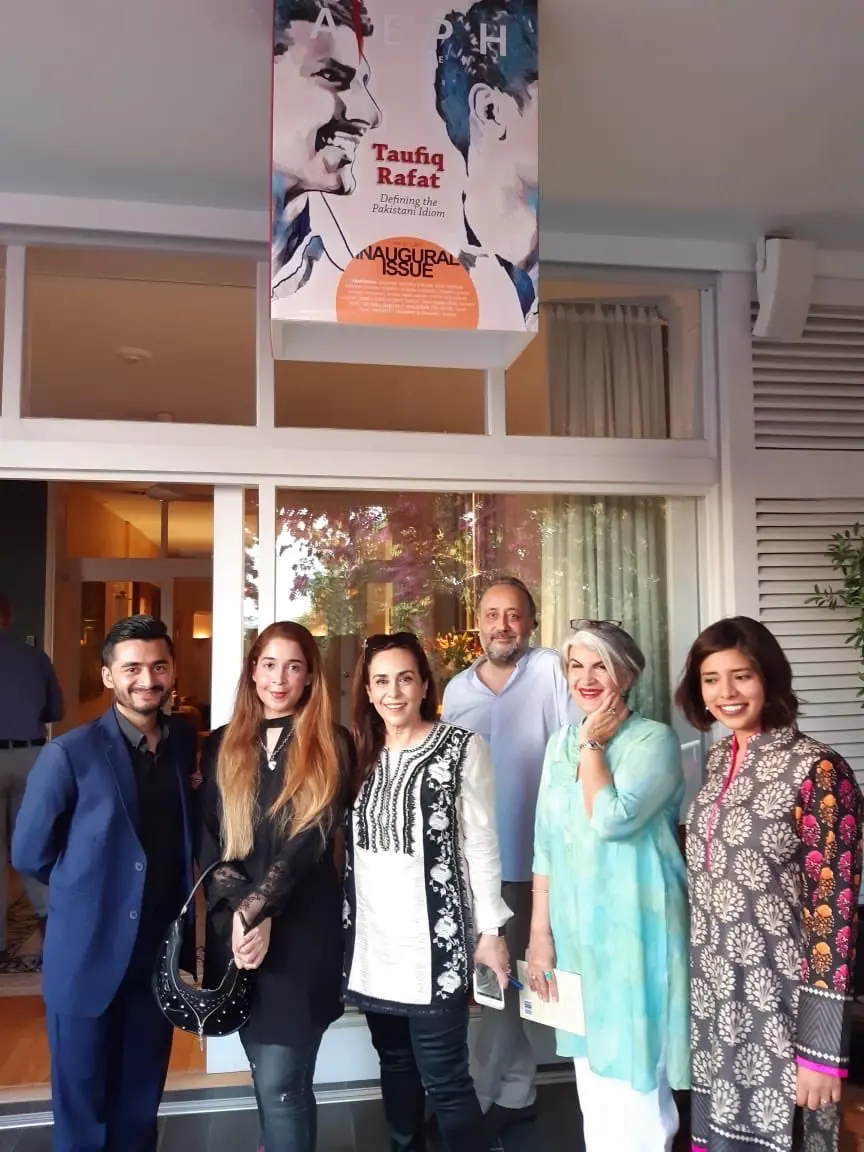
The woes of a publisher in Pakistan never end though. Aleph was being printed by, arguably, the best publisher in town till Covid-related economic recessions hit and the price of imported paper doubled. The ‘best’ was no longer an option; they were not willing to pull down their price for a non-profit, literary cause. Luckily, though, Hassan and Mina suggested another printer, who turned out to be the one we had used during the Libas days, and all is well.
Interest, as I said, is crucial in becoming a publisher in Pakistan. I wish the same applied to booksellers, especially the male-dominated ones who see books as a business. Luckily, they have been off-set by others, female-dominated, smart businesses, who want to encourage home publications and know a good product when they see one. Kayal, Como Museum and now The Last Word fall neatly in the second category. I have also just found a great resource lately in Book Corner, Jehlum.
For the most part, I have noticed, through experience and research, that despite the odds stacked against them, women in publishing in Pakistan are ingenious—whether it is troubleshooting printing problems, or drumming up ads or sponsors. Many have initiated a larger discourse between the public and writers through their literary festivals.
I would not be able to talk about this without mentioning Madeline Amelia Clements of Teesside University in the UK. She stepped into the scene like the lynchpin that women publishers so need in Pakistan. With her, we founded PAWPE, the Pakistan Association of Women Publishers and Editors.
One of our first projects, and indeed one that taught me a lot about the role of women publishers in Pakistan, was a research project under the aegis of and with funds from Teesside University, and with The Aleph Review and the Karachi Biennale Trust (under Niilofur Farukh) providing concrete support. The idea was to fund four researchers to delve into the work of women publishers in Pakistan, particularly those that have folded up or whose archives are endangered.
Hira Azmat and Mahnoor Jalal from Lahore and Tazeen Hussain and Veera Rustomji from Karachi enthusiastically jumped on board for the research.
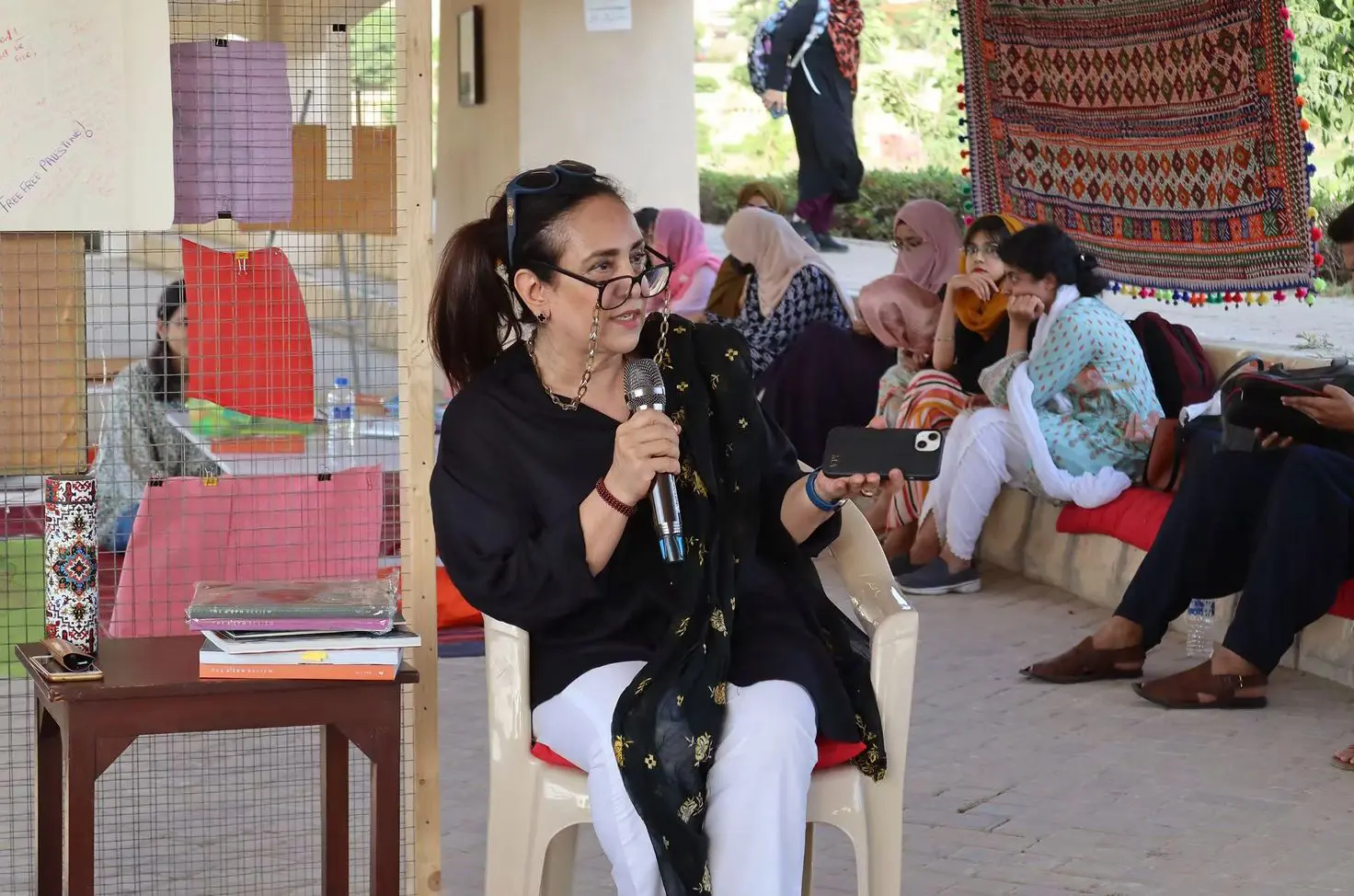
The researchers covered She magazine (Founded and published by Zurha Karim, for a bit by Zed Publications, then again by Zuhra), Nukta Art (co-founded by Niilofur Farukh, Rumana Hussain, Amra Ali and Sabiha Rumani, and published by Niilofur Farukh’s husband Farrukh Sheikh); Simorgh Publications Lahore (part of work done by Simorgh Women’s Resource and Publication Centre. Simorgh is a Collective so, interestingly, there was no individual ownership. Collective founders and members: Neelam Hussain, Ferida Sher, LalaRukh, Nasrene Shah, Rubina Saigol, Samina Rahman, Popti Bukhari, Naheed Aziz) and Paper magazine (publishers Mehr Tareen and Samina Khan), as well as certain WAF (Women’s Action Forum) letters from Lahore. Others, such as Libas and the publications of the Aurat Foundation, were left out due to a last minute withdrawal of the former and lack of response from the latter.
PAWPE researchers’ findings were highlighted at the Karachi Biennale 2024, and a digital handbook has been put together which will esquisse the findings of all four and will be soon available on certain websites, including The Aleph Review. PAWPE is also planning to publish this handbook, so that the works of publishers whose magazines/journals are no longer being published find a niche in the archival history of this sector in libraries. It is sad that some chose to gatekeep their archives and withdraw from the project.
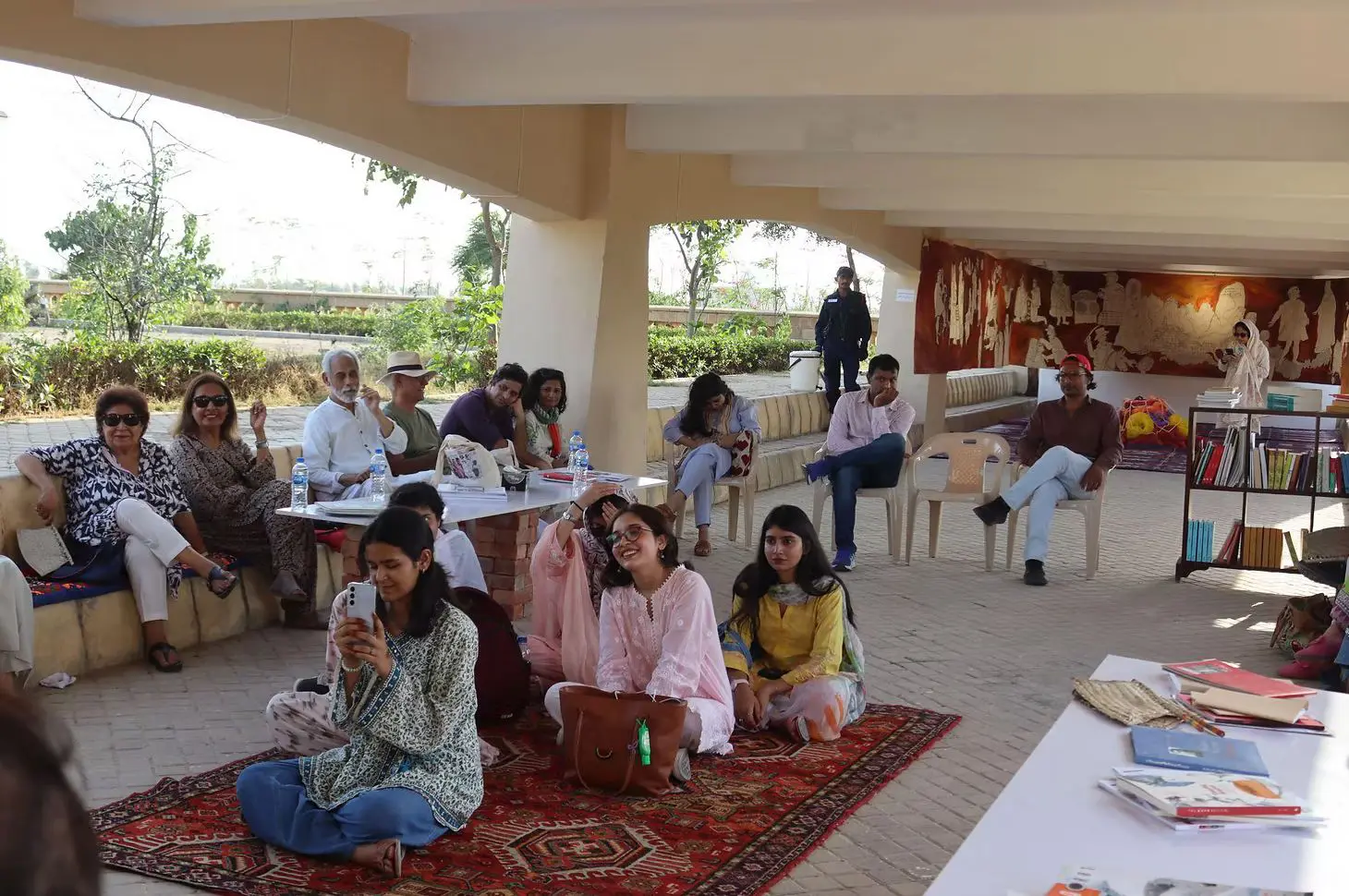
Apart from the women publishers highlighted in our research projects, others that we left out because they are still in business include Ameena Saiyid, a publishing giant, at first managing director at Oxford Publishing Press and then later founder of her own company, Lightstone Publishers. She earned my respect when she insisted on going ahead with publishing controversial titles, and was targeted with death threats and a bombing attempt.
Then there are: Shahbano Alvi of Ushba Books; Mehr F. Hussain of Zuka Books; Maniza Naqvi of Little Book Publications; Safina Danish Elahi of Reverie Books; Sabin Muzaffar of online magazine Ananke, which also runs an online litfest every year and Mina Malik, co-founder of The Peepul Press. The publishing houses that have folded up include Mongrel Books run by Shandana Minhas.
Interest, as I said, is crucial in becoming a publisher in Pakistan. I wish the same applied to booksellers, especially the male-dominated ones who see books as a business. Luckily, they have been off-set by others, female-dominated, smart businesses, who want to encourage home publications and know a good product when they see one.
In news publications, women publishers include Jugnu Mohsin, publisher of The Friday Times; Nazafreen Saigol-Lakhani of the Dawn group, as well as Rameeza Majeed Nizami of the Nawa-i-Waqt group, of which she is Editor-in-Chief/Managing Director. I think it can be different for women in newspaper publishing; perhaps interest is not as important as loyalty to a family business. I wonder if this could be done for our publishing houses as well.
For the most part, I have noticed, through experience and research, that despite the odds stacked against them, women in publishing in Pakistan are ingenious—whether it is troubleshooting printing problems, or drumming up ads or sponsors. Many have initiated a larger discourse between the public and writers through their literary festivals, as indeed Ameena Saiyid has with her Adab Festival and Sabin Muzaffar with her Ananke online festival.
One strong reason for publications to shut down, of course, is when the funds dry up.
The other is personality-based.The publisher/editor, being so strong, creates a vacuum when she steps down or passes away, resulting in the publication folding up. It is as if the project has been buoyed up by just one personality.
If a publisher wants a continuation of her legacy, some steps must be undertaken by her to circumvent this—putting the publication in a trust to be run by professionals under the aegis of friends or family, for example.
Because the saddest part in this tradition of bringing forth brilliant publications in Pakistan is their sudden demise.


